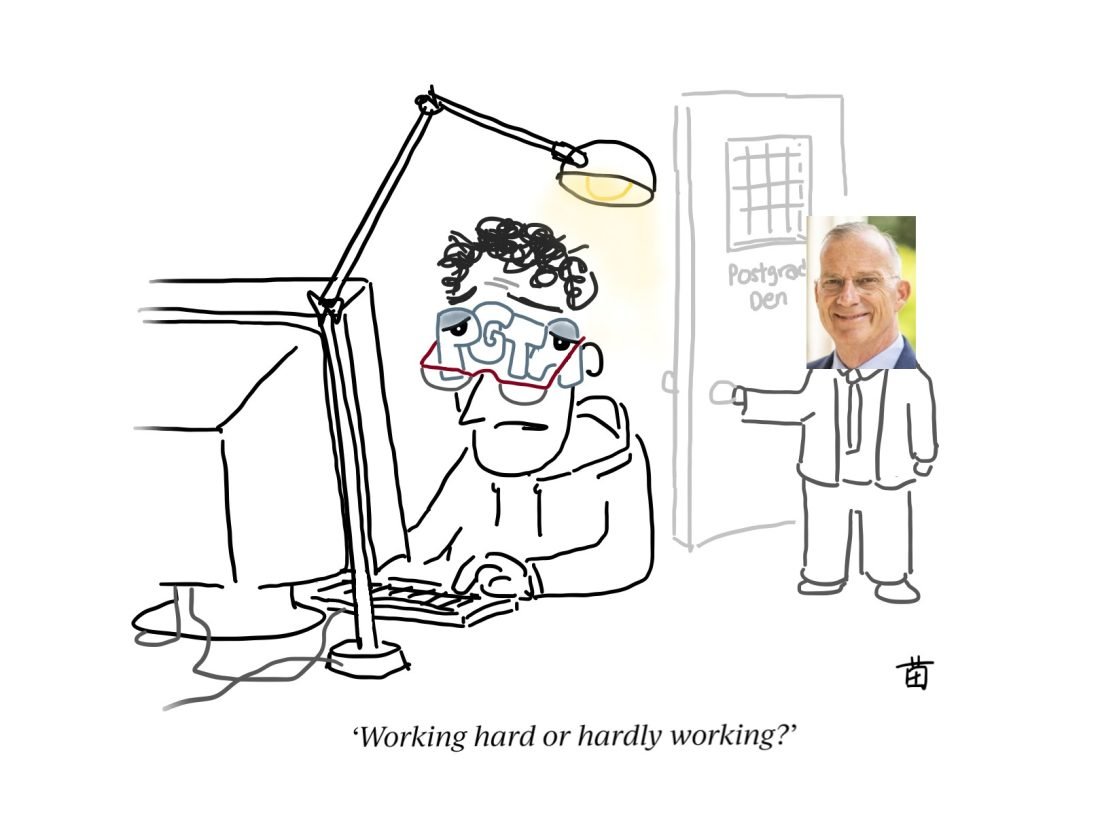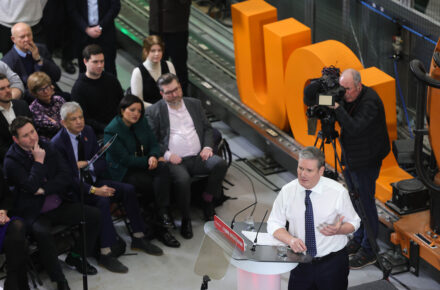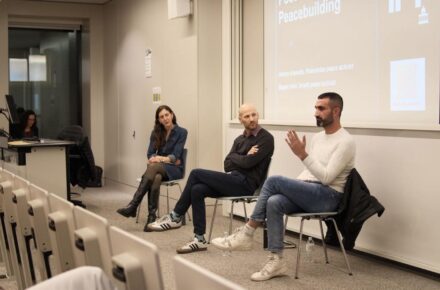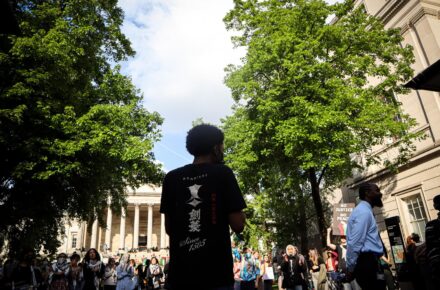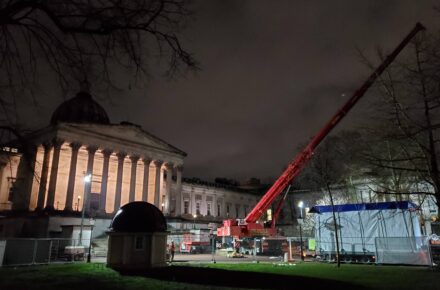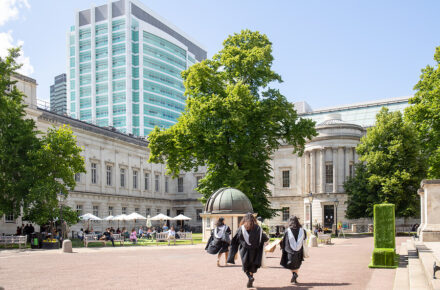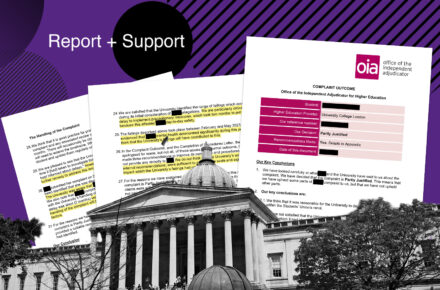Andrea Bidnic, Malvika Murkumbi and Mayra Nassef
In 2017, The Cheese Grater published an article titled “Teaching on the cheap: UCL’s exploitation of teaching assistants revealed”. This article illuminated the plight of UCL’s Postgraduate Teaching Assistants (PGTAs), PhD students who assist module convenors by dispensing lectures, teaching seminars, and marking assignments.
PGTAs currently constitute between 1500 and 2000 members of the UCL community, a sizable proportion of UCL’s teaching staff who, depending on their department, prepare lectures and seminars, help lecturers, mark assignments, and answer students’ emails. The 2017 article spotlighted a series of drastic pay gaps that included UCL’s PGTAs making considerably less than PGTAs at other London universities.
Since The Cheese Grater’s last article, the situation for PGTAs has not improved. Often forced to work additional hours with little to no compensation for it, PGTA wages are still lower than those of their equivalents in other London universities and are sometimes paid late. Despite numerous complaints since 2017, UCL’s inaction and seeming indifference towards the condition of their PGTAs has persisted.
The following interviews from Issy Smith (The Student’s Union Postgraduate Officer), an anonymous PGTA, and an Institute of Archaeology PhD Students’ Representative make it clear that UCL needs to reconfigure their treatment of PGTAs.
What’s the current situation?
Unpaid overtime continues to be a widespread issue for PGTAs. The gap between their maximum number of contracted hours and the real quantity of work is often considerable.
PGTAs are employed on fixed-term contracts and are required to fulfil these duties within a maximum of just 180 hours a term, making managing such a workload, in the words of Issy, “not even plausible”. She ventured to describe the situation as “exploitation”, before confirming in a firmer tone that “it definitely is”, and “has been an issue for a long time”. The responsibilities for PGTAs, as Issy explained, are only going to increase, considering UCL’s “stupid” willingness to increase student numbers each year across most departments.
This treatment is unfair. Such working conditions also make taking on a second part-time job impossible, exacerbating the already precarious financial situation of many PhD candidates.
This issue is further complicated by UCL’s non-competitive salaries in comparison with other London universities. At Imperial College London, PGTAs’ pay per hour ranges from £18.48 to £30.41 depending on the job description. In contrast at UCL, pay is limited to between £16.99 and £19.73 per hour, depending on the candidate’s experience but regardless of the work undertaken.
When The Cheese Grater asked the Institute of Archaeology (IOA) PhD representative for an explanation behind such disparity, they defeatedly explained, “that’s how much they value PGTA students”.
It was also revealed that such a miserable salary is also often affected by late or missed payments. Issy asserted the delayed payment “is all to do” with PGTAs’ respective departments, and not the central UCL administration, which relies on “the department submitting the right material documents on time”.
In addition to the fragile economic situations they foster, such poor working conditions create “an amount of stress that can sometimes lead people to just give up on their PhD completely” and “burnout”, the PhD student representative told us.
As one may expect, unpaid overtime and generally poor working conditions also impacts on the quality of PGTAs PhD research. The interviewed PGTA explained that “for some people it may have been a detriment to their PhD as well” because “they’re basically spending too much time focusing upon lectures and teaching”.
As each PGTA has their own unique situation, in their own department, with their own module convenor, tackling issues across the institution is very complex. When Issy went to HR to communicate on PGTAs’ problems she was told they were “aware of individual cases” but couldn’t “act on anything unless it’s a theme or a bigger pattern”. However, it did not “particularly” make sense to our Postgrad officer who was rightfully concerned that the prevalence of individual cases was not sufficient enough to trigger a reaction from HR and the spot-checking of departments.
PGTAs and the “cultural norm” of higher education
Explanations for the consistent overworking of PGTAs cannot be purely limited to tightening budgets. As the interviewed PhD rep explained, such mistreatment results from a deep-rooted “cultural norm”. PGTAs seek academic recognition from their professors by not complaining and accepting demands to work more, so the more PhD students “get screwed over by a professor [setting a lot of extra work], the better [they] feel”, the IoA representative told The Cheese Grater.
The representative went on to explain that these practices are so entrenched that in the past, many PhD students went against proposed changes to the PGTA system, opposing the very representatives who sought to defend them, in order not to appear “weak” or “overworked” in front of managers.
Whilst there are many understanding professors who sympathise with the PGTAs and have attempted to help improve the situation, according to the PhD representative, they are “met with resistance” from colleagues or departments’ committee members who perpetuate this “culture of overwork and abuse”. In the representative’s opinion, academics “100% suffered from such a culture [when they were in] in the same place” in their careers and continue this mistreatment.
PhD students speaking up or complaining about their situations can amount to career suicide, “because these professors become your enemy, and then you can’t get a job at university”, the IoA representative warned.
Fear of speaking up
Over the course of our investigation, The Cheese Grater did observe a wall of silence from those working as PGTAs at UCL. PGTAs who experienced harsh working conditions constantly refused to be interviewed, likely out of the feared retributions mentioned above.
Despite the outlined state of employment for PGTAs, the situation is not so dire for all working in such a role. One PGTA described his line manager as “very supportive” and “very patient”, noting that they “felt very grateful to work underneath her”. This positive experience of one employee demonstrates that the structural issues faced by PGTAs are far from insurmountable, and that many more senior members of staff within the system provide great mentorship and support.
It must be noted that it is difficult to assess the number of PhD students experiencing hardships. Nevertheless, the recurrence of complaints throughout the years and the concrete figures about their poor rate of pay serve as the main proof of their persistence. If change can only be enacted by UCL’s central administration, the use of the SU’s great lobbying power could be crucial.
Union weakened by lack of recognition
The Task and Finish Group commissioned by UCL’s Quality and Standard Committee (QSC) would be the first step in enacting improvement. The QSC is the authority which, as Issy explains, “reviews a handful of departments each year (…) looking into their practices broadly as a teaching forum” to ultimately provide improvement recommendations.
Issy explained that QSC is more focused on the training of PGTAs and perfecting the relationship between PGTAs and undergrad students, rather than on the actual pay, salaries and power relation issues outlined above. However, she still described the creation of such a program as a “positive step” which should allow the SU to pressure the relevant UCL administrative authorities to make sure “whatever recommendations come out of it are actioned”.
Nevertheless, the SU’s potential is greatly weakened by their limited acknowledgement amongst PGTAs: far too many are not informed about the kind of SU support they could benefit from.
The PGTA interviewed by The Cheese Grater asserted that “there needs to be more emphasis placed on the potential support that the SU can offer, especially in the role as an external judicator or a person that can end up repping you, especially when things get rough.”
Issy told The Cheese Grater that “I don’t think people realise that I can support them,” adding that, not being “linked in any way to departments”, she keeps reports anonymous. She then added, “I will really want to launch an awareness campaign about PGTAs and the kind of support and access you can have from the Union”.
A lose-lose situation
Inevitably, PGTAs’ poor treatment deteriorates the quality of their teaching. The IoA PhD representative told us that as a PGTA, you can “use the time you’re assigned to do to the best of your capabilities” or work overtime for free to provide “good feedback for students”.
Students pay a hefty price to attend UCL (or alternatively plunge themselves into a large amount of debt) and if “you don’t have time to dedicate” to your studies, “your quality of teaching is going to be bad”, the IoA representative explained. For both PGTAs and undergraduate it’s a lose-lose situation.
The mistreatment experienced by some PGTAs, coupled with their involuntary or forced silence takes its toll on PhD students’ mental and physical health, leading to burnouts and a poorer quality of teaching.
Years after the first complaints arose, the wait for major improvements goes on. Will PGTAs’ salvation come from the SU? Issy likes to think so, she wants to “make sure that there’s solid foundations (…) for these issues to really take momentum” by the time her mandate ends in June. “There’s a lot of good people [within the SU and UCL] trying to do good work (…) I will keep fighting my side”.
Graphic by Nick Miao
This article appeared in CG 87.

